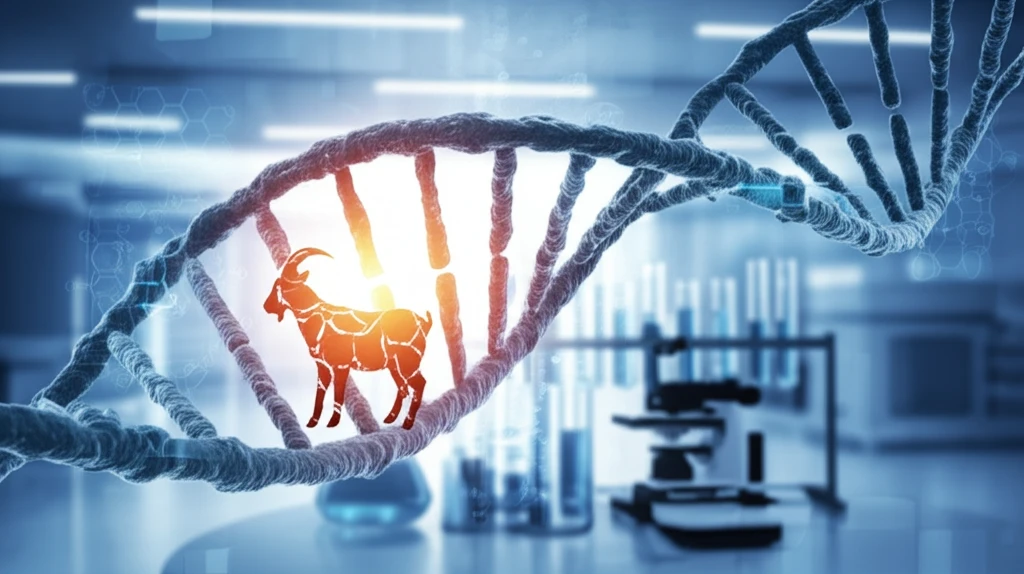
Is Your Goat Meat the Real Deal? New PCR Test Unveils Food Fraud
"A breakthrough in food safety: Discover how real-time PCR testing is revolutionizing the detection of goat meat adulteration, ensuring you get what you pay for."
In an era where food authenticity is increasingly questioned, economically motivated adulteration (EMA) has emerged as a significant concern for consumers and regulatory bodies alike. The practice of EMA, where food products are deliberately altered to increase profits, poses risks to public health, consumer trust, and fair trade practices. One area particularly vulnerable to EMA is the meat industry, where cheaper or less desirable meats are often substituted for higher-value products like goat.
Goat meat, prized for its unique flavor and nutritional profile, is a staple in many cuisines around the world. However, its premium status makes it a target for adulteration, with unscrupulous producers substituting it with cheaper alternatives such as pork, chicken, or even less conventional meats. This not only defrauds consumers but also raises serious concerns about food safety and religious dietary laws.
Traditional methods for detecting meat adulteration, such as visual inspection or basic chemical tests, often fall short in accurately identifying the presence of substituted meats. Mainstream PCR methods also can have issues regarding qualitative detection. Recognizing the need for more reliable and precise detection methods, researchers have developed an innovative real-time PCR technique that promises to revolutionize the detection of goat meat adulteration.
The Science Behind the Solution: Real-Time PCR and Goat Meat Authenticity

Real-time Polymerase Chain Reaction (PCR) is a sophisticated molecular technique that amplifies specific DNA sequences, allowing scientists to detect even trace amounts of a target substance within a sample. In the context of food safety, real-time PCR can be used to identify the unique DNA signatures of different animal species, providing a highly accurate means of detecting meat adulteration.
- High Accuracy: The test boasts a high degree of accuracy in detecting goat meat adulteration, even at low levels.
- Quantitative Analysis: Unlike traditional methods, this test provides quantitative data on the amount of goat meat present in a sample.
- Versatility: The reference primer-based approach can be adapted to detect adulteration with unknown animal species.
- Rapid Results: Real-time PCR delivers results in a fraction of the time compared to traditional methods, enabling faster detection and response to food fraud incidents.
Protecting Consumers and Ensuring Food Authenticity
The development of this real-time PCR test represents a significant step forward in the fight against food fraud and the protection of consumers. By providing a rapid, accurate, and versatile means of detecting goat meat adulteration, this technology empowers regulatory agencies, food producers, and consumers to make informed decisions and ensure the authenticity of their food supply. As food fraud continues to evolve, innovative detection methods like real-time PCR will play an increasingly critical role in maintaining the integrity of the global food system.
